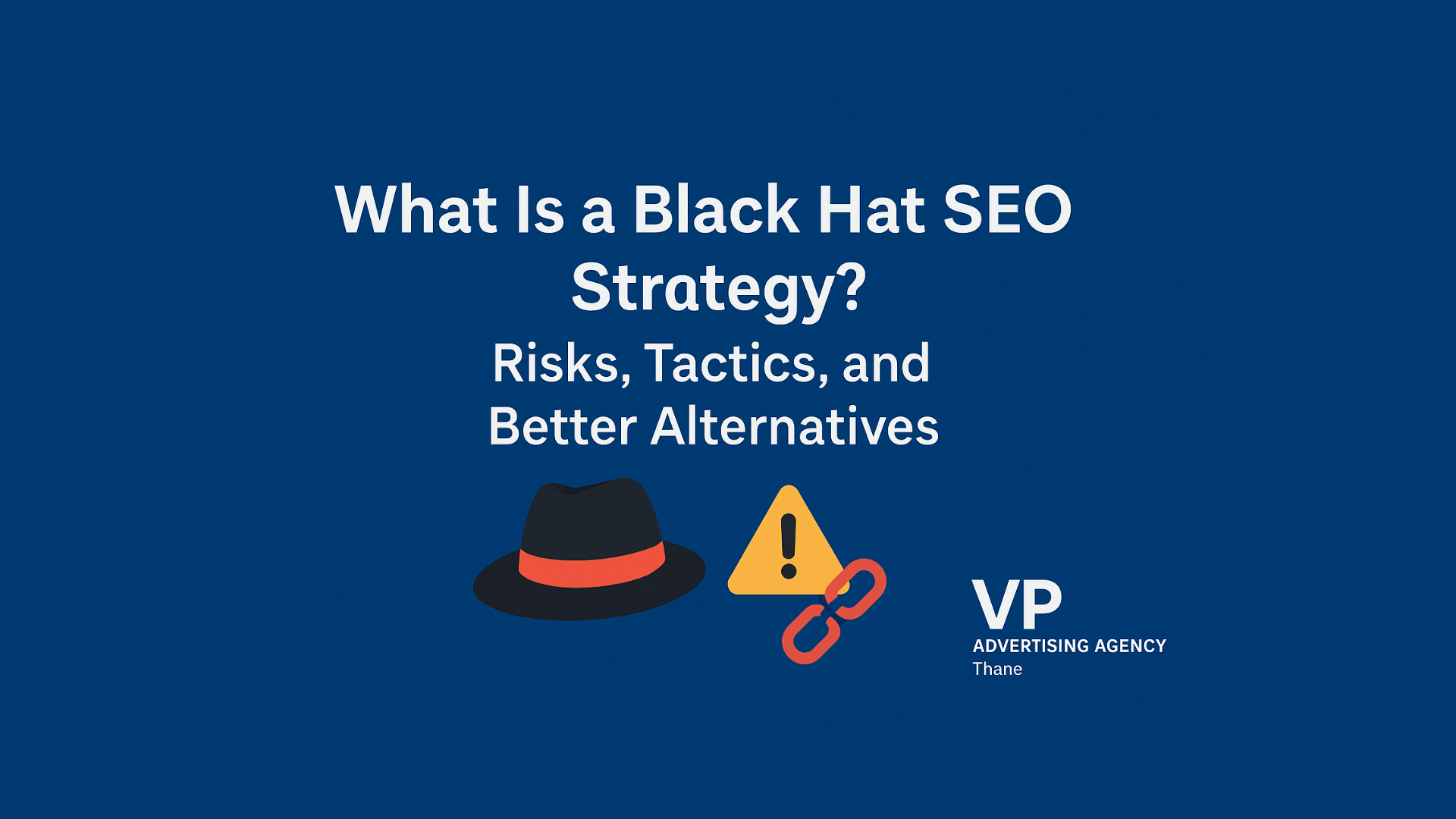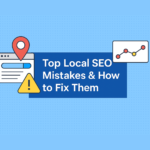- September 17, 2025
- Categories: SEO
- Tags:
What Is a Black Hat SEO Strategy? Risks, Tactics, and Better Alternatives
Search engine optimization (SEO) plays a critical role in improving website visibility, but not all strategies are created equal. While some methods help you earn rankings ethically (known as white hat SEO), others attempt to manipulate algorithms through deceptive tactics, this is known as black hat SEO.
In this blog, we’ll explore what black hat SEO is, the common techniques involved, the risks it carries, and smarter alternatives you should use to grow your website sustainably.
What Is a Black Hat SEO Strategy?
A black hat SEO strategy involves using unethical or manipulative tactics to gain higher search engine rankings often by violating Google’s Webmaster Guidelines. These strategies may deliver short-term success, but they almost always result in penalties, lost rankings, or even complete removal from search engine indexes.
In short:
Black hat SEO prioritizes fast gains over long-term results and puts your domain reputation at serious risk.
Top Black Hat SEO Strategies to Avoid
1. Keyword Stuffing
This involves cramming keywords into your content unnaturally.
Example:
“Buy cheap running shoes online cheap running shoes India best running shoes for men cheap.”
Search engines now penalize content that appears spammy or unreadable.
2. Cloaking
Cloaking delivers different content to search engines than to human visitors.
For example, showing a page about “travel tips” to users but delivering “casino” content to crawlers. This is deceptive and highly punishable.
3. Hidden Text and Links
Some black hat practitioners hide keywords or links using CSS (e.g., white text on a white background). While this might fool some users, search engines detect this easily and penalize it.
4. Link Schemes
Buying backlinks or participating in link farms and PBNs (Private Blog Networks) are common black hat strategies. While backlinks are important for SEO, they must come naturally from credible sources.
5. Clickbait and Misleading Redirects
Creating sensational titles to drive clicks but offering unrelated or low-value content afterward leads to high bounce rates and loss of credibility.
6. Spam Comments and Forum Links
Dropping irrelevant links in blog comment sections or discussion boards in an attempt to build backlinks. These are often marked as spam and offer no real SEO value.
7. Duplicate or Scraped Content
Copying content from other websites or duplicating your own pages without canonical tags is a major red flag for search engines.
Why You Should Avoid Black Hat SEO
Even if black hat tactics give a temporary ranking boost, the risks far outweigh the benefits:
- Google Penalties: Manual or algorithmic actions can tank your site’s rankings overnight.
- Loss of Trust: Users who encounter shady or misleading content are less likely to return.
- Damaged Reputation: It can take months (or years) to recover your domain authority.
- De-indexing: Your site may be entirely removed from Google’s search results.
Smarter Alternatives to Black Hat SEO
Instead of using risky techniques, invest in white hat SEO strategies that deliver long-term value:
- Content-Driven SEO: Write high-quality, original content that answers user intent.
- On-Page Optimization: Use proper headers, keyword placement, and meta tags.
- User Experience Focus: Improve site speed, mobile responsiveness, and accessibility.
- Ethical Link Building: Gain links through guest posting, PR campaigns, and outreach.
- Technical SEO: Ensure proper indexing, clean site structure, and optimized schema markup.
By focusing on sustainable SEO strategies, you not only avoid penalties but also build lasting brand authority.
Understanding what black hat SEO is and why it’s dangerous is crucial for every website owner, marketer, or agency. The internet is full of shortcuts, but when it comes to SEO, there are no lasting gains without ethical effort. If you want to grow your online visibility safely and steadily, stick to proven white hat methods that benefit both users and search engines.




